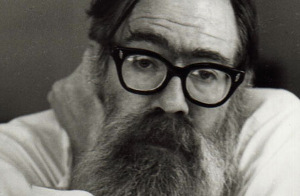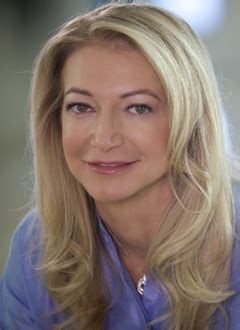A Quote by Robert Bly
You say to yourself, Well, this poem isn't going to be any good, but I'll write it anyway.
Related Quotes
A successful poem says what a poet wants to say, and more, with particular finality. The remarks he makes about his poems are incidental when the poem is good, or embarrassing or absurd when it is bad and he is not permitted to say how the good poem is good, and may never know how the bad poem is bad. It is better to write about other people's poetry.
I write first drafts with only the good angel on my shoulder, the voice that approves of everything I write. This voice does'nt ask questions like, Is this good? Is this a poem? Are you a poet? I keep this voice at a distance, letting only the good angel whisper to me: Trust yourself. You can't worry a poem into existence.
Gather knowledge about the craft of writing. Immerse yourself in the art of it. Then write. Write yourself silly. Write yourself mad. Write yourself blind. Trust the excitement that builds within you when the idea is good and the writing is superb. You can do it, but that's the hell of it as well as the exultation of it. You have to do it.
I wrote a number of poems about Kah Tai lagoon, when Safeway was building that huge, ugly store down there where I used to love to watch the birds nest. That political poem, or environmental poem, was unsuccessful because Safeway built there anyway. And yet the poem has something to say today, as it did then. And I speak here only of my own poems. The agenda for every poet has to be different because most of us write from direct human experience in the world.
The poet must not only write the poem but must scrutinize the world intensely, or anyway that part of the world he or she has taken for subject. If the poem is thin, it is likely so not because the poet does not know enough words, but because he or she has not stood long enough among the flowers--has not seen them in any fresh, exciting, and valid way.
It's difficult to put your own bare ass out on the limb every time you sit down to write a poem. But that's really sort of the ideal. Because if we don't discover something about ourselves and our world in the making of a poem, chances are it's not going to be a very good poem. So what I'm saying is that a lot of our best poets could be better poets if they wrote less and risked more in what they do.
I started out in graduate school to be a fiction writer. I thought I wanted to write short stories. I started writing poems at that point only because a friend of mine dared me to write a poem. And I took the dare because I was convinced that I couldn't write a good poem... And then it actually wasn't so bad.




































